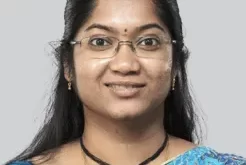Breaking the Silence on Menstrual Hygiene
The Stigma Around Menstrual Hygiene—and How to Fight It
Breaking Taboos Around Menstrual Hygiene with Pee Safe Founder Vikas Bagaria
Delhi, 3rd February 2025: Menstrual health and intimate personal hygiene are still taboo in many parts of India. Around 71% of adolescent girls do not know about menstruation before their first period and 60% of women experience vaginal and urinary tract infections each year due to poor menstrual hygiene. Pee Safe Founder Vikas Bagaria joined media entrepreneur and author Shutapa Paul on the What India Needs! podcast recently to discuss the stigma surrounding menstrual care and evolving hygiene practices in India. The episode explored the challenges, societal shifts, and innovative solutions driving change across the intimate care space.
Breaking the Silence
As the conversation got underway, Paul noted how period myths are still pushing women to the sidelines in India. “Superstitions, social taboos, and discomfort govern the topic of personal hygiene—especially female hygiene,” she said. Menstruation, particularly the shame associated with it, plays a major role in keeping adolescent girls out of school, which limits their prospects in life.
Moreover, the problem is not limited to rural areas alone. Pointing to the widespread practice of wrapping sanitary pads in black plastic to keep them hidden, Bagaria said, “Even in urban areas, menstruation is treated as a secret.”
Inadequate menstrual hygiene facilities and societal taboos are often to blame. They are the reason why, as Bagaria remarked, 60% of teenage girls are dropping out of school across the country. “While there has been some progress, with period care penetration increasing from 20% in 2017 to almost 40% at present, there is still a long way to go. Real change requires awareness, education, and collaboration,” he said.
Sustainability in Hygiene
While promoting menstrual hygiene is important, Paul also pointed to the country’s massive menstrual waste problem. “India alone has about 355 million menstruating women, and the amount of waste that is being pushed back into the earth is serious,” she said.
Around 121 million Indian women use sanitary pads (12.3 billion pads annually), generating 113,000 tons of waste each year. Menstrual cups and reusable sanitary pads offer a solution, and they are also more cost-effective than disposable pads.
Bagaria spoke of the need to highlight that sustainable menstrual products can be affordable. “The most expensive biodegradable sanitary pad costs ₹3,000 for the entire year. It’s not at all expensive when you see what it gives you. It is very affordable compared to a lot of things that we consume daily,” he said. Besides, as the consumption of these sustainable options increases, their prices are expected to drop.
He added, “We are pushing menstrual cups, which are far more affordable than a sanitary pad as they can be used for five years.” They don’t end up in a landfill after just one use. Paul agreed, saying, “Women need to break their mental perceptions about reusable products.”
Reaching Out to Men
Bagaria believes it is just as important to include men in conversations about menstrual health. Pee Safe’s “Men buy pads” campaign encourages fathers, brothers, and spouses to actively support the women in their lives.
The episode also touched upon the critical but rarely discussed subject of male hygiene. “Why don’t we also talk about men’s personal hygiene? Men generally have not had to face the kind of taboos that women have had to face, but they still do. We’re not talking about it much, even in mainstream media,” Paul remarked.
Bagaria said he was pleased to see new-age brands addressing men’s hygiene openly. Pee Safe has expanded its product line to include men’s intimate washes, formulated to maintain pH balance and hygiene. Emphasising the need for awareness around men’s intimate hygiene, Bagaria noted that it is hardly ever discussed but deserves attention all the same.
The Road Ahead
Delving into the prospects for the intimate hygiene market and what the future holds for brands like Pee Safe, Bagaria said, “In the next ten years, we will see India reach around 70 to 75% penetration.” He estimates the market could be worth $2.5 billion by then.
The Pee Safe founder also had business advice for aspiring entrepreneurs, urging them to focus on solving problems rather than chasing funding. “Your customer should be your biggest investor. Create a product that solves a real problem and success will follow,” Bagaria said.
 Newspatrolling.com News cum Content Syndication Portal Online
Newspatrolling.com News cum Content Syndication Portal Online






